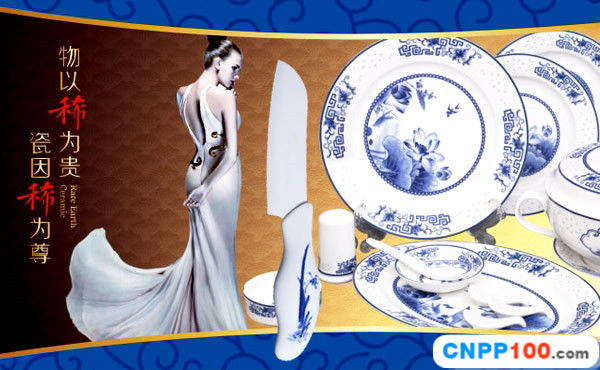
A well-known ceramic knife brand, a subsidiary of Qiandong Rare Earth Group, specializes in the production and operation of medium and high-end daily-use porcelain, art porcelain, and antique porcelain products
In the east of Ganzhou City, the water surface of the Gongjiang River, the ripples of the clear waves, the foot of the seven mountains is lined up, the river side is obliquely inserted, and the seven waterways are separated, just like the seven big carps playing and grabbing the water to go up, the opposite bank of the "carp" is the ancient town in the south of the Yangtze River named for this - Qili Town (also known as Qili Town, now Qili Village). Today, the ancient banyan tree covers the sky, the scenery is beautiful, there is no noise, it is an ancient town that is leisurely and quiet, standing next to the river. The traffic of the past has passed, leaving the occasional sparse pebble path, but when talking about the pile of dozens of ancient porcelain kilns along the river, from the ancient porcelain pieces that can be picked up and spotted with sand moraines, there will be a thousand years ago kiln smoke and fog, porcelain Jia Ruyun, one of the four famous kilns of the Song Dynasty in Jiangxi Province, Qili had the glory.
Born for the ancient kiln and inherited for the Seven Carp civilization. Ganzhou Qili Ceramics Co., Ltd. is a wholly-owned enterprise of Qiandong Rare Earth Group, with a high starting point and high investment in the construction of "Qili Kiln" ceramic project. At present, Qili Ceramics Company has a unique resource advantage, has formed a complete production line and mature production technology, and established Ganzhou Qili Ceramic Art Research Institute, on June 26, 2011 to rekindle the fire of more than 700 years of Qili ancient kiln.
Ding Furen, honorary director of Qili Ceramics Company and China Yangtze River Delta Collection Research Association, director of Shanghai Furen Ceramic Art Museum, Ye Wencheng, professor of Xiamen University and former president of China Ancient Ceramics Research Association, Tang Kai, professor of the Department of Archaeology of the Chinese Academy of Social Sciences, invited expert of CCTV "National Treasure Archives", and president of the China Yangtze River Delta Collection Research Association, Yu Jiadong, former deputy director and researcher of Jiangxi Provincial Institute of Cultural Relics and Archaeology, Xue Qiao, former director of Ganzhou Museum, former director and researcher of Xiamen Museum in Fujian, and president of Xiamen Ancient Art Research Association, Liu Jinfeng, a former researcher of the Ganzhou Museum, and other well-known domestic and provincial and municipal ceramic archaeological experts have worked closely together to deeply excavate and sort out the ceramic cultural heritage of the Qili kiln. Qili Ceramics Co., Ltd. efficiently grafts the cultural and technical resources of Jingdezhen art ceramics, blends the "Qili kiln" with the customs and cultural characteristics of the south of the Yangtze River, transforms the application results of rare earth in ceramics with modern aesthetic orientation, and develops a series of high-end daily-use porcelain, art porcelain, antique porcelain and other products.
While paying attention to the scientific and technological research and development of ceramic products and cultural inheritance, Qili ceramics pays more attention to the shaping of the "Qili kiln" brand and the operation and promotion of the market, and will gradually establish a franchise flagship image store or marketing center in Jingdezhen, Ganzhou, Nanchang, Shenzhen, Shanghai, Nanchang and other places, and establish a market-oriented channel model, and strive to improve the domestic marketing network before 2018, so that "Qili kiln" creates a higher taste of life for the Chinese people, and creates a new era of rare earth ceramics!









